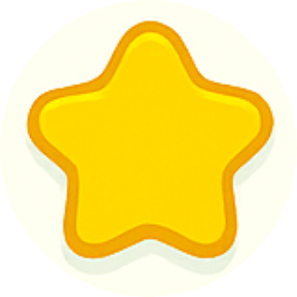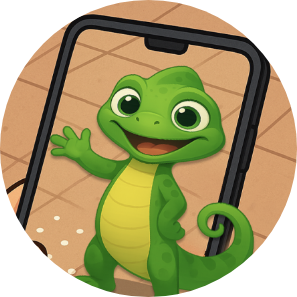The Science Behind Coggi
Growing healthy minds through play, backed by science.


Children today are growing up in a world of constant change. Rates of anxiety, stress, and loneliness are rising, while support systems often can’t keep up. Long waitlists, overburdened schools, and limited resources leave many children without the tools they need to thrive.
Coggi was designed to fill that gap, turning evidence-based wellbeing practices into fun, engaging, play-based activities that fit seamlessly into a child’s daily life.
Why Science Matters
At Coggi, we believe every child deserves more than just academic success. They need emotional strength, resilience, and confidence to navigate life. Our app is built on three decades of research in psychology, neuroscience, and child development.
What the science shows us:
- Early experience shapes the brain. The first years of life are a sensitive period when children rapidly form neural connections. Positive experiences and supportive relationships help hardwire resilience and wellbeing (Hosokawa et al., 2024).
- Positive psychology builds thriving kids. Practices like gratitude, mindfulness, and strengths-spotting boost children’s happiness, optimism, and ability to cope with stress (Benoit & Gabola, 2021; Mendes de Oliveira et al., 2022).
- Play is how children learn best. Play strengthens memory, attention, creativity, and problem-solving. Play-based interventions improve children’s emotional regulation and positive social behaviours (Dias Rodrigues et al., 2023; Veraksa et al., 2025).
- SEL changes outcomes. Large-scale studies of Social and Emotional Learning (SEL) programs show improved academic results, stronger relationships, better emotional regulation, and reduced stress, anxiety, and depression (Durlak et al., 2011; Zhai et al., 2015).
- Digital interventions can work. Digital programs designed for children improve empathy, emotion recognition, and reduce behavioural problems, with measurable effects lasting months (Naumann et al., 2023; Fernández-Batanero et al., 2025).
How Coggi Brings the Science to Life
- Grounded in research. Every game, challenge, and AR story in Coggi is rooted in proven psychology and child development science.
- Made playful. We translate evidence-based techniques into fun activities that children enjoy, from calming breathing exercises to imagination-driven storytelling.
- Designed for healthy habits. Just a few minutes a day with Coggi builds lifelong skills in confidence, resilience, and emotional awareness (Muir et al., 2023).
- Supportive for parents and schools. Coggi is a safe, engaging tool that complements the work of parents, teachers, and healthcare providers.
Why It Matters
In a world shaped by AI, attention challenges, and rapid change, it’s emotional/human skills, not just academic ones, that prepare children for the future.

Grow confidence by discovering strengths

Recharge through calming exercises

Reduce anxiety with guided challenges

Explore creativity through AR storytelling

Build life skills that last
References
- Benoit, V., & Gabola, P. (2021). Effects of positive psychology interventions on the well-being of young children: A systematic literature review. International Journal of Environmental Research and Public Health, 18(22), 12065. https://doi.org/10.3390/ijerph182212065
- Cai, B., Luo, Y., Li, Y., & Wang, C. (2025). School-based interventions for resilience in children and adolescents: A systematic review and meta-analysis. Journal of Child Psychology and Psychiatry, 66(2), 123–139. https://doi.org/10.1111/jcpp.14032
- Dias Rodrigues, A., Dias, M. J., Barata, C., & Gonçalves, C. (2023). Body-oriented interventions to promote preschoolers’ social-emotional competence: A randomized controlled trial. Frontiers in Psychology, 14, 1198199. https://doi.org/10.3389/fpsyg.2023.1198199
- Durlak, J. A., Weissberg, R. P., Dymnicki, A. B., Taylor, R. D., & Schellinger, K. B. (2011). The impact of enhancing students’ social and emotional learning: A meta-analysis of school-based universal interventions. Child Development, 82(1), 405–432. https://doi.org/10.1111/j.1467-8624.2010.01564.x
- Fernández-Batanero, J. M., Fernández-Cerero, J., Montenegro-Rueda, M., & Fernández-Cerero, D. (2025). Effectiveness of digital mental health interventions for children and adolescents: A systematic review. Children, 12(3), 353. https://doi.org/10.3390/children12030353
- Hosokawa, R., Katsurada, E., & Nishizawa, Y. (2024). Enhancing social-emotional skills in early childhood: A systematic review. Early Childhood Education Journal, 52(1), 45–63. https://doi.org/10.1007/s10643-023-01491-7
- Muir, R. A., Howard, S. J., & Kervin, L. (2023). Interventions and approaches targeting early self-regulation or executive functioning in preschools: A systematic review. Educational Psychology Review, 35, 27. https://doi.org/10.1007/s10648-023-09776-4
- Naumann, S., Bayer, M., Kirst, S., van der Meer, E., & Dziobek, I. (2023). A randomized controlled trial on the digital socio-emotional competence training Zirkus Empathico for preschoolers. npj Science of Learning, 8(1), 20. https://doi.org/10.1038/s41539-023-00169-8
- Zhai, F., Raver, C. C., & Jones, S. M. (2015). Social and emotional learning services and child outcomes in third grade: Evidence from a cohort of Head Start participants. Children and Youth Services Review, 56, 42–51. https://doi.org/10.1016/j.childyouth.2015.06.016
